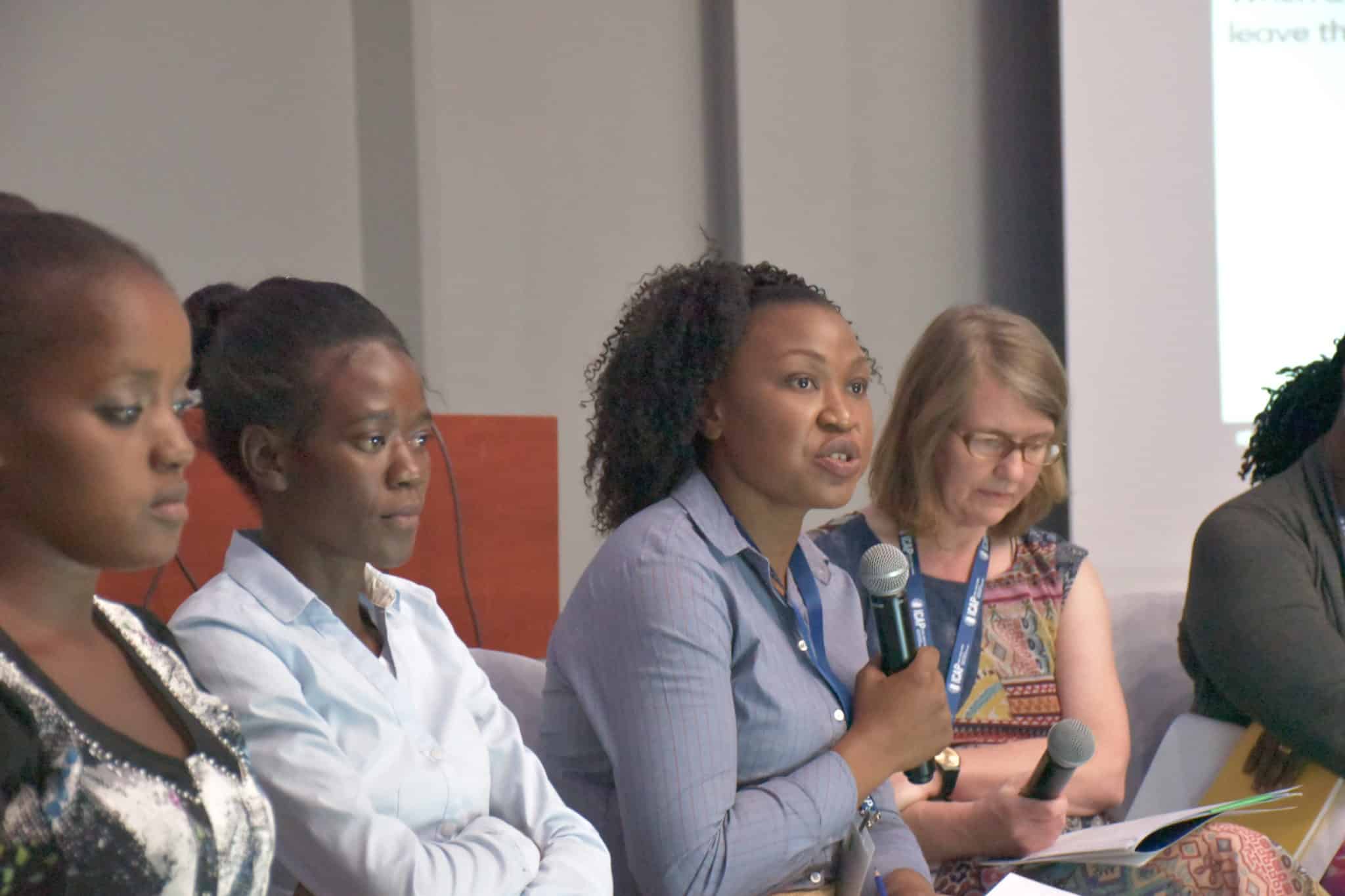As countries scale up differentiated service delivery (DSD) for HIV, there are significant implications for key populations—sex workers, men who have sex with men, people who use drugs, transgender people, prisoners, and others.
Designing person-centered DSD prevention, testing/linkage, and treatment models that are attuned to the issues of stigma and access specific to each group will be critical to ensuring equity and achieving HIV epidemic control.
Community of Practice
Formally launched in 2022, the Key Population CoP’s initial focus is on improving the quality of HIV services that key populations receive in the public sector, emphasizing HIV care and treatment services.
- Over 110 participants from 18 network countries and global organizations are in the CoP.
- Dr. Cassia Wells is the technical lead, supported by Ms. Leocadie Koffi (CQUIN Regional Project Operations Coordinator).
- Main activities include quarterly calls for knowledge exchange and parallel sessions at CQUIN annual meetings.
Activities
Meetings
CQUIN, in collaboration with the South-to-South HIV Prevention Learning Network (SSLN), held a virtual meeting in August of 2021 focused on DSD for key populations with the goal of sharing current science and guidance, catalyzing the exchange of best practices and supporting partner countries to improve the quality and coverage of HIV services for key populations groups.
The four-day meeting was held on August 25-26,30-31, 2021. Access meeting plenary, parallel sessions, Q&As, slide presentations, and more on the key populations meeting page here.
Sessions at other CQUIN Meetings:
- Parallel session at CQUIN Seventh Annual Meeting in November 2023.
- CQUIN’s Sixth Annual Meeting in December 2022, Session 13d: DSD for Key Populations parallel session
- CQUIN’s Delivering Quality at Scale in Differentiated Service Delivery (DSD) Programs workshop in April 2022, Session 10a: Ensuring High-Quality DSD Services for KP Groups parallel session
- CQUIN’s virtual Fifth Annual Meeting in November 2021 parallel sessions:
-
- Session 3b: Key Populations 1: DSD for Men Who Have Sex With Men
- Session 6c: Key Populations 2: DSD for Sex Workers
- Session 9b: Key Populations 3: DSD for People Who Inject Drugs
-
- CQUIN’s virtual Fourth Annual Meeting in December 2020, Session 9b: Differentiating HIV Services to Meet the Needs of Key Populations breakout session.
Conferences and Webinars

CQUIN, in collaboration with FHI 360, SSLN, and the International Network of People who Use Drugs (INPUD), co-hosted a satellite session entitled Differentiated Service Delivery for People Who Inject Drugs (PWID) in Africa: Priorities and Lessons Learned at the 24th International AIDS Conference in Montreal, Canada, in July 2022.
The session centered community voices from Africa in a panel and keynote address by a representative from the international network of people who use drugs in Africa (AfricaINPUD.) In addition, representatives from participating organizations presented case studies from three diverse settings.
More information about the session can be accessed through the conference website here and the session was summarized in an online article available here.
Webinars
- Optimizing HIV Services for MSM in Zimbabwe (October 2020)
- Differentiated HIV Service Delivery for People in Prison (October 2021)
Other Activities
Collaborating with the Quality Management CoP to develop quality standards for key population-friendly services in the public sector (coming soon).

